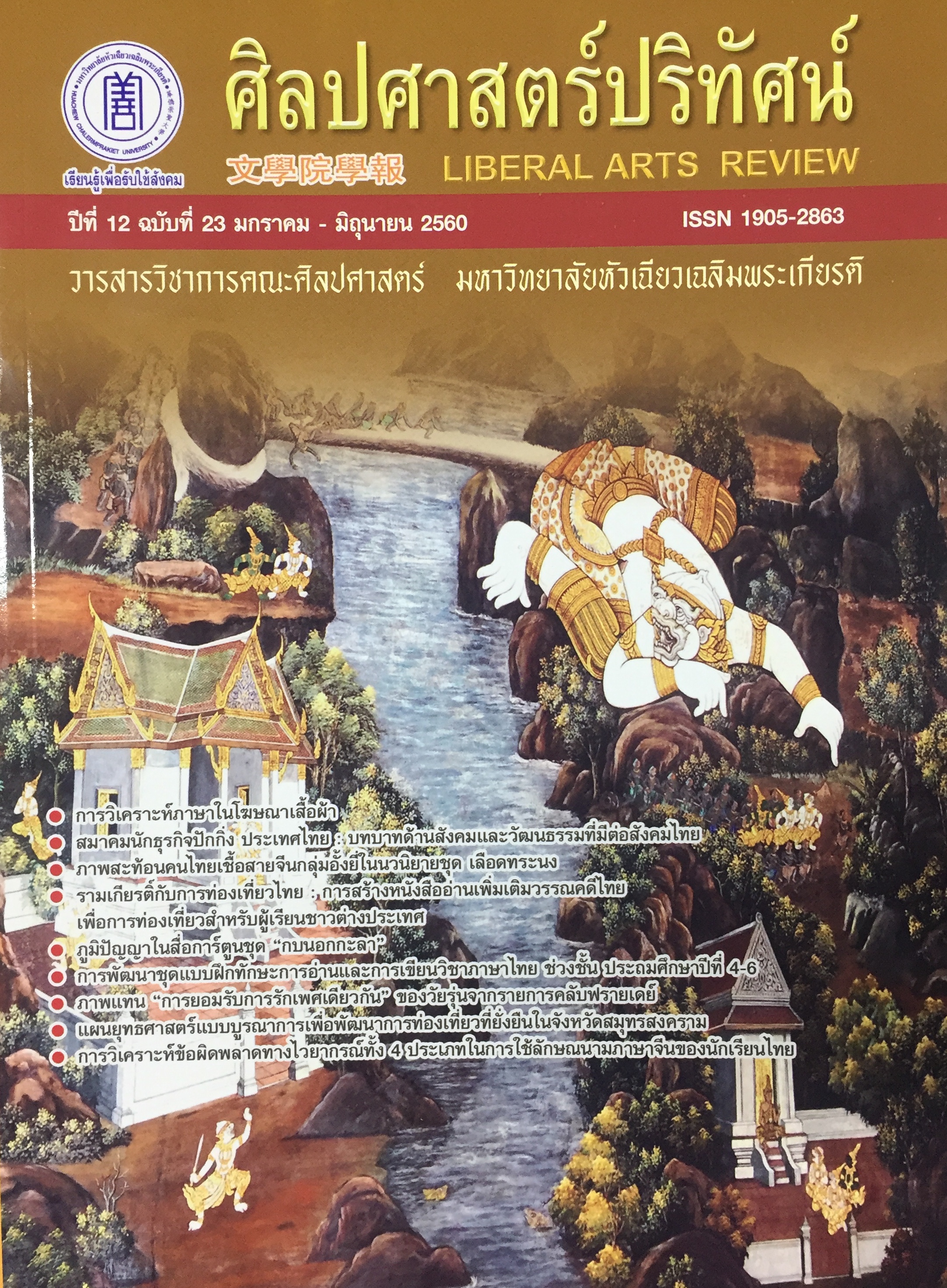An Analysis of Language in Clothes Advertising
Keywords:
Uniqlo, H&M, Online flyers, Clothes advertising, Existential presuppositionAbstract
The primary purpose of the research is to examine why H&M could achieve a higher sales volume than Uniqlo did during 2011 and 2014. The paper seeks to answer: 1) whether the language used in the online flyers of both Uniqlo and H&M persuades customers’ purchase decision or not; 2) the ways in which advertising language persuades customers’ purchase decision; and 3) how the language used in the online flyers of the two companies differ. Fifty pairs of archived online flyers of Uniqlo and H&M from Wayback Machine search engine (http://www.archive.org) during 2011 and 2014 were collected. The advertising language was then analyzed with the use of existential presupposition, which refers to the assumption that the entities named by the advertiser or the writer exist. The analysis involves low levels of inference or interpretation using these triggers - the, this, these, your, and our, and negation test to check presuppositions. The results suggest that language used in clothes advertisements of both Uniqlo and H&M appear to influence their customers to make a decision in buying. Although more entities named in Uniqlo’s advertisements exist than in H&M’s, the former uses language that focuses on basic design and product quality. Uniqlo could not persuade viewers to buy more of its products, perhaps because H&M used more descriptive words or adjectives to convey its stylish fashion to customers aged between 15 and 40 who preferred clothes with fashionable and attractive design to basic design and product quality. The results mirrors each brand identity and can imply that customers in this age range prefer stylish design that is fashionable and attractive to basic design and to product quality
Downloads
Published
How to Cite
Issue
Section
License
บทความที่ได้รับการตีพิมพ์เป็นลิขสิทธิ์ของวารสารศิลปศาสตร์วิชาการและวิจัย
ข้อความที่ปรากฏในบทความแต่ละเรื่องในวารสารวิชาการเล่มนี้เป็นความคิดเห็นส่วนตัวของผู้เขียนแต่ละท่านไม่เกี่ยวข้องกับมหาวิทยาลัยหัวเฉียวเฉลิมพระเกียรติ และคณาจารย์ท่านอื่นๆ ในมหาวิทยาลัยฯ แต่อย่างใด ความรับผิดชอบองค์ประกอบทั้งหมดของบทความแต่ละเรื่องเป็นของผู้เขียนแต่ละท่าน หากมีความผิดพลาดใดๆ ผู้เขียนแต่ละท่านจะรับผิดชอบบทความของตนเองแต่ผู้เดียว




